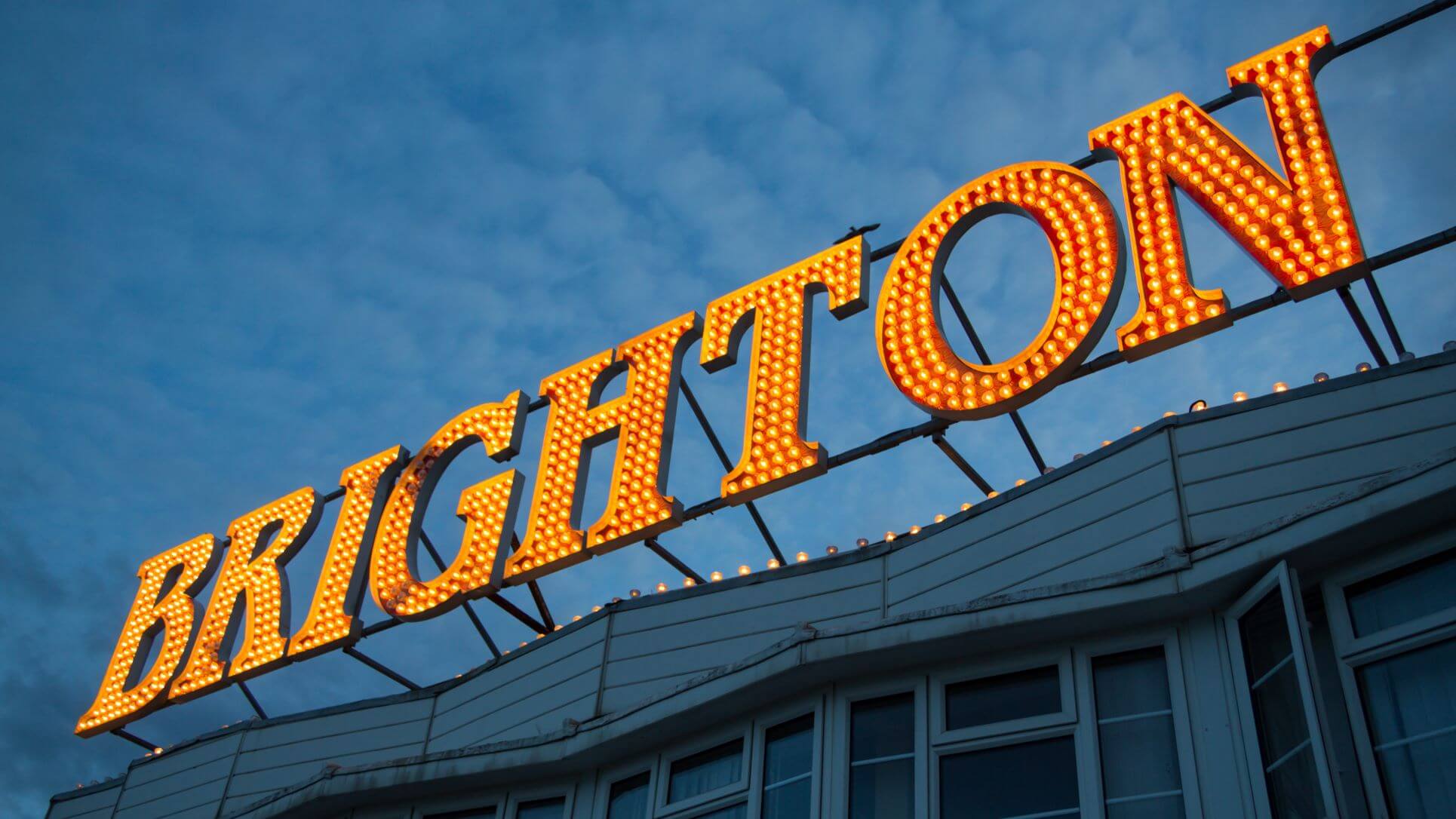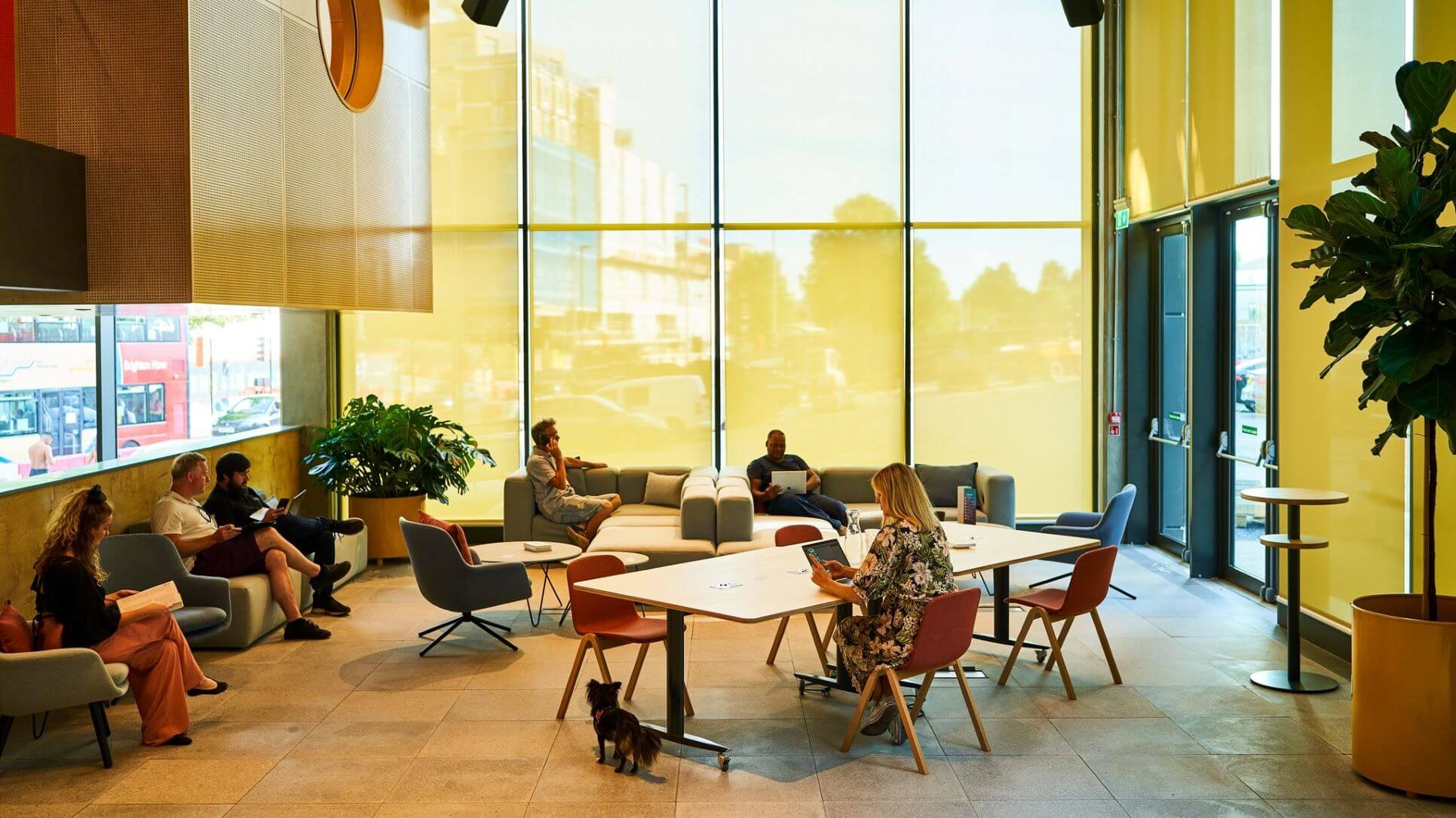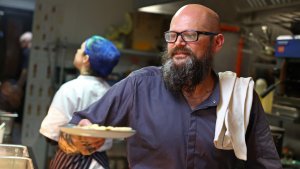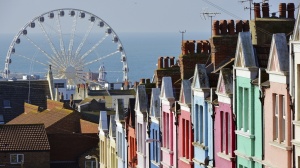Brighton’s New Breed Of Eco-Entrepreneurs
They're not just green, They're future-proofed.

In 2018, Brighton was named the UK’s most entrepreneurial city, and Lloyds Bank touted it as one of the most promising start-up hotbeds in Britain. Despite the economic upheaval of the pandemic much of the local business ecosystem has continued to flourish.
In July 2020, the launch of innovation programme BRITE (Brighton Research Innovation Technology Exchange) sparked a new stream of collaboration between entrepreneurs, academics and corporates.
The city’s social smorgasbord of bohemians, students, arts and tech types, has long made it a magnet for eco-minded businesses. Bolstered by having the country’s only Green MP in Caroline Lucas, the latest new breed of entrepreneurs are proving they no longer need to choose between environmental credentials and commercial success. As consumers and policymakers face the realities of a warming climate, they believe the two increasingly go hand in hand.
We spoke to some of the people behind Brighton’s green economy on what they’ve learnt from their sustainability journeys, and why they think businesses failing to respond to the climate crisis face their own existential threat.
MarinaTex
MarinaTex is a bioplastic material made from seafood waste that’s designed to serve as an alternative to single-use plastic.
Founder, Lucy Hughes, created the product for her final year project at the University of Sussex, using wastage from a fish processing and wholesaling plant twenty minutes along the coast in Newhaven.
“As I was coming towards the end of my product design degree, I felt this sense of disillusionment. Knowing that the products I’d be working on in my career would likely be unnecessary consumables that are destined to be a huge part of the planet’s problems.”
After some encouragement, Lucy entered the concept for MarinaTex into the James Dyson Awards where it won the international category.
“Getting that recognition from James Dyson in 2019 was a turning point. I realised that being a product designer put me in a brilliant place to drive positive change and the funding meant I could take MarinaTex to the next level.”
"I couldn’t think of a better city for us than Brighton. It’s got the workshop spaces we need, and a well-established eco value chain in the area"
It’s not all been plain sailing for Lucy. Funding cuts due to Brexit, heated competition for the government’s COVID-19’s smart innovation grants, and tackling a fundamental pillar of modern consumerism – plastics – has been a struggle.
“When you look at government strategies today, the conversation is still centred around how we can recycle plastics already in production, rather than supporting innovation in alternative materials.”
This has translated into a tricky relationship with standards, rules and regulations. “Unfortunately, standardisation in the UK is not conducive to product innovation or alternative materials to plastic. With any kind of emerging technology, there are hurdles you have to overcome from the outset – more than I would have imagined.”
However, with the support of local initiatives like BRITE and spaces like Plus X innovation hub, fostering collaborations between entrepreneurs, academic researchers and corporates, Lucy is completing research and development stages for the business and making plans to open a production facility.
“The sustainable options can be expensive, as often you’re trying to put value back where it’s been displaced originally. I rely on economies of scale to become profitable. You should always be transparent with your journey and let your customers know what your plans are for the future.”
“Though the impact of the individual is negligible, consumer attitudes and trends are so important. And I think that’s something Brighton has in spades. There’s an authenticity here when it comes to sustainability and greenwashing, well, it won’t wash here!”
When asked what a sustainable business means to her, she replied:
“I think a sustainable business is a future-proofed entity that places Earth as a stakeholder, and acts within planetary boundaries and takes responsibility for its impact on the world.”
Roadways
James Bailey and his partner Victoria Vasilauskaite had an unusual entry into sustainable business.
Both left the corporate world and purchased the established Sussex business, Roadways, in 2015. The duo immediately set about transforming the business into a modern, ethically-based organisation.
“Neither of us knew anything about construction or green tech, but we wanted to make our mark and do our own thing. Concrete is by no means glamorous… but we knew we wanted to choose a business where we could make the most impact. If you’d told me seven years ago that I’d be running a construction business in Sussex, I wouldn’t have believed you!” says James.
And few sectors need a green overhaul quite like concrete. Concrete production, specifically cement, has astronomical carbon consequences – equating to 8 per cent of global carbon emissions.
Roadways’ takes a recycling-based approach to road maintenance, via a circular economy recycling hub. It has launched an asphalt that saves 40 per cent, and concrete that saves a huge 70 per cent CO2. By blending its own low carbon cement, Roadways is saving the equivalent of 4.8 million car kilometres of CO2 a year.
“Because of its implications for the planet, I think that if you’re in construction, you should automatically be in the sustainability business,” adds James. “However, that’s not the case. And the bizarre thing is that it doesn’t cost any more to make low carbon concrete. In fact, all the concrete plants could produce it right now. It’s because no-one is promoting it so the demand is not there.”
The industry does not have sustainability targets for the materials it uses. “We do a lot of work on highways and when we send an environmental report, it’s focussed on how many miles we’ve driven, or whether we’ve left the engines running on the diggers.”
Not only are James and Victoria seeking to make concrete production more sustainable, they’re also set on bringing some of the reforms other sectors have gone through into construction.
“The construction sector is stuck in the 70s and there’s a massive skills shortage at the moment. Diversity and inclusion is very important to us, and we bring in female project managers that have transferable skills from other sectors.”
“After Brexit, I think that a lot of foreign workers felt rejected and unwanted in the UK. We’ve become a visa sponsor to retain access to European workers and to welcome talent from even further around the globe."
“Being a part of programmes like BRITE is a tried and tested model. If you foster innovation, incentives and programmes – innovation will happen. We share a workspace with a mechanical engineer that’s helped us to produce the computer-aided-design for some machinery we’ll be using in the coming months. It’s great to know that if you have an issue, there’s likely someone in the building who can solve it for you.”

Plus X creates innovation hubs, enabling business of all sizes to scale through innovation and curated collaboration
Gomi Design
Like MarinaTex, the inspiration behind Gomi Design came from a final year university project. Tom Meades was studying 3D Design and Craft at the University of Brighton when he became interested in using atypical materials to create beautiful objects.
“Studying 3D Design and Craft, much of the course was focussed on how you can turn materials into objects that have value. But my interest was always in materials that don’t have value. I was on a mission to design a product that could consistently be recycled at high value” says Tom.
He set about using plastic bags, classed as non-recyclable by most UK councils, to create sleek portable speakers that are powered by 100% repurposed e-bike batteries. Gomi – meaning ‘waste’ in Japanese – was born.
A failed initial Kickstarter campaign was not an auspicious start, but a 2019 feature in Forbes sent Gomi into the stratosphere. Since then, Tom and his business partner Pawan Saunya have seen through 100k in Kickstarter campaigns, collaborations with the likes of Heineken and Paul Smith, and most recently a merger with London-based business Zero Waste Club.
“I couldn’t think of a better city for us than Brighton. It’s got the workshop spaces we need, and a well-established eco value chain in the area. Plus X Brighton has all the kit we need to prototype whenever we want. And it’s great to be surrounded by so many other inspiring makers and creators.”
Creating a material from scratch is no small feat. “Starting a green business hasn’t been easy. Not only did we invent the material, we had to invent the manufacturing process and then the final product. There’s no blueprint for us to follow as no one’s done this before.”
“That said, the benefit of designing a material that’s your own is that you know it incredibly well. A lot of product designers don’t have that same connection to the material.”
With Gomi now under its wing as an in-house design team, Zero Waste Club is on a mission to become the UK’s first truly sustainable everyday essentials brand, selling everything from make-up removal pads to coffee filters.
“I think my generation is really clued up about sustainability. There are people my age at Plus X innovation hub that are using their skills to do good in the world. It’s not just about making money, it’s really about doing something good for people and the planet.”
To find out more about the BRITE programme and details on how to apply, visit www.briteinnovation.co.uk.
If you're a budding product designer based in the Greater Brighton area that would like to make your product ideas a reality, Product Foundry, a BRITE programme, is an intensive innovation programme including hands-on design, making and testing. Product Foundry is open for applications until September. To apply, or to find out more, visit briteinnovation.co.uk/product-foundry.
About BRITE
BRITE (Brighton Research Innovation Technology Exchange) has been designed by Plus X, in partnership with the University of Brighton, to support leaders of companies that have ambitions to grow and scale their business through innovation and collaboration and is receiving up to £5.5m of funding from the European Regional Development Fund. You can find out more at BRITEinnovation.co.uk
About Plus X Brighton
Plus X creates innovation hubs, enabling business of all sizes to scale through innovation and curated collaboration. With a unique formula combining inspiring architecture, healthy and inspiring work space, specialist facilities, business support programmes and education partnerships, Plus X helps business and local communities to thrive. Working in partnership with property owners such as regeneration specialists, U+I plc, Plus X innovation hubs help transform areas by unlocking potential, making local economies more vibrant and resilient. For more information visit: https://plusx.space/
Thanks for signing up to Minutehack alerts.
Brilliant editorials heading your way soon.
Okay, Thanks!


